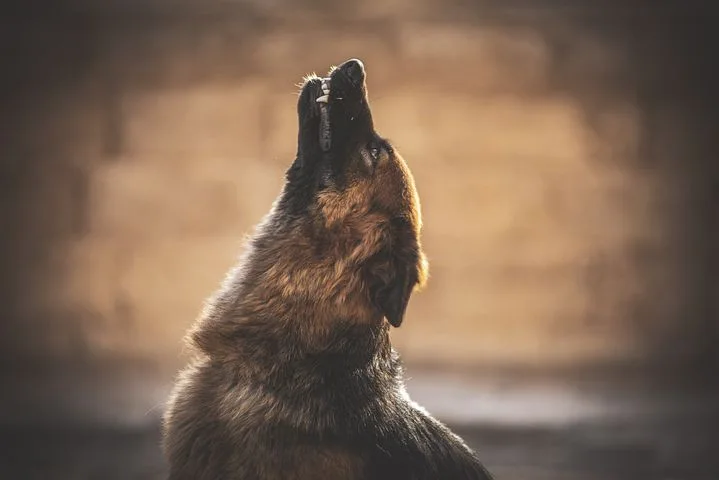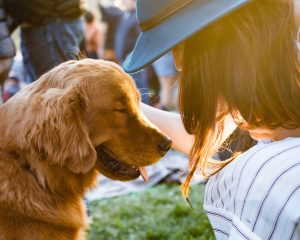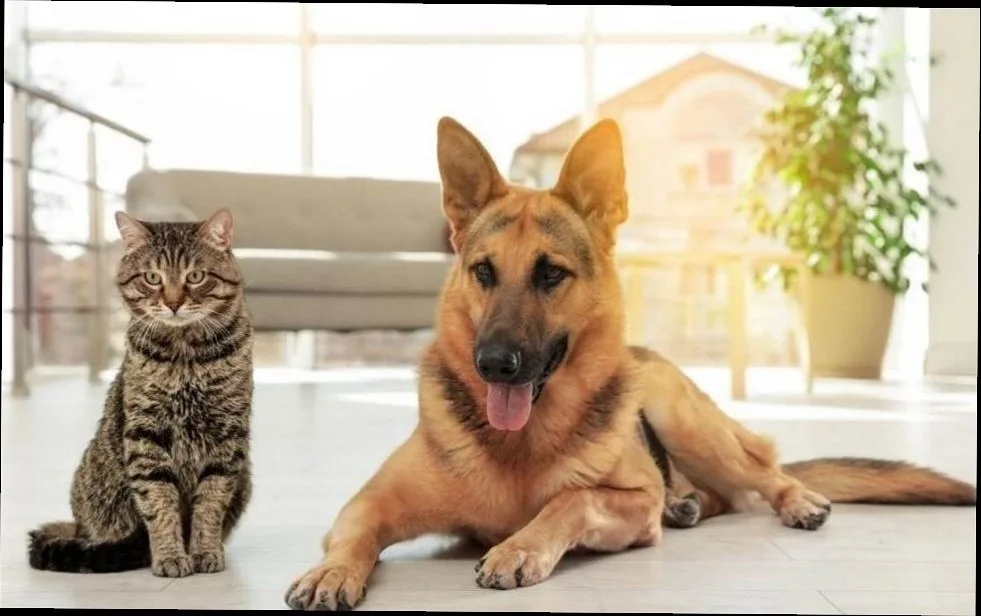
There are many beliefs about why German Shepherds do wolf howls. Some people believe in superstitions about howling dogs, while others are very concerned about the cause of howling dogs. But the German Shepherd howl can be explained by understanding its cause and nature.
If your German Shepherd has a habit of howling, you may want to know why. This article will show you some of the reasons why your German Shepherd may be howling and what you can do about it.
So, why does my German Shepherd howl? The main reason is that German Shepherds are descended from wolves and there is a space in the primitive part of their brain that instinctively recalls some of the behaviors of their ancestors, and howling is one of them.
In fact, there are many reasons why German Shepherds howl, which may or may not be a cause for concern. If you want your German Shepherd to reduce his howling, then you should first figure out what the root cause is and then take steps to correct it.
Why Does My German Shepherd Howl?
Table of Contents
It's All About Territory
Howling for German Shepherds can sometimes warn others that they may be encroaching on their territory. This is a signal to other dogs or any other animals present that the dog is ready to engage them if they are closer to the source of the howl.
This behavior also originated with wolves, which need to ensure that they have an area all to themselves in case of a kill or the presence of pups. By howling, wolves are able to ensure that their territory does not overlap with that of other packs. Domestic dogs are members of the canine family and are part of the wolf canid family. As a result, all dogs behave like wolves, but some dogs are more vocal than others. Some dogs do this as a defense mechanism.
Separation Anxiety
Their howling indicates that they want you to come back to them. Simply put, your dog loves you, misses you terribly, and your absence makes them anxious . Therefore, your German Shepherd wants you back.
In addition, when you return at the end of the day, your dog perceives his howling as a success. This understanding reinforces the howling.
Separation anxiety can lead to undesirable behaviors in your dog, such as excessive barking and howling. Once this behavior occurs, it can be difficult to train your German Shepherd to get rid of it. It can also lead to them barking when they are indoors. If your German Shepherd is left alone all the time, they will forget how to behave around people. They may also lose gentle petting. You may end up with a German Shepherd that growls, barks and even bites. This will also make it more difficult to control.
If you think this is the problem, take proactive steps to find a solution. Perhaps you can try arranging for someone else to look after him. If your German Shepherd is suffering from separation anxiety, you should seek professional help to help them stay happy in your absence.
Alarms
You should have noticed that as soon as the alarm goes off, your dog immediately howls along.
Some owners believe that the loud sound of the siren will make their dog feel distressed, this is a common misconception, when you see your dog hear the siren ask yourself, does he look distressed? Most likely you will notice your dog wagging his tail and seeming to enjoy the sound.
If prompted enough, most dogs will howl along with a sustained sound such as a siren, mimicking the low to high sound of a classic howl .
The reason for this behavior again brings up the German Shepherd lineage. Wolves never bark to communicate with each other. Instead, they howl. So when your dog hears a siren, what it wants to say is "Go away!" when the siren is moved from the area. They feel as if they've accomplished something. So this causes your dog to howl over and over again every time he hears the alarm.
Singing
I remember my dog howling when I turned on a certain piece of music, or when he heard other howling or barking noises on the TV.
Researchers say that canines actually have the ability to perceive pitch. Music has a variety of sounds and pitches. Dogs may begin to howl at music in response to sounds that can be heard by the human ear, or perhaps even some sounds that only dogs can hear. You can decipher what your dog is saying, but when he howls along to a song, he tends to like himself.
Sick or injured
When your German Shepherd is injured, they may howl in pain for your help. This sound is like a baby crying , and the sound is usually relatively low.
When your dog howls, watch him carefully for signs of pain. German Shepherds are known for enduring pain, if he is acting hunched over or looks unnatural and his howling prompts you to look closely, he is in real pain, get him to the vet immediately.
If you think about the origins of the domestic dog, a single wolf approximately 15,000 years ago, it makes sense that dogs do howl, as do wolves and coyotes. One theory is that the dog that howls for long periods of time is either bored or lonely. Another suggests they are searching for another canine or providing a location to a far away pack member. The howl is considered to be a long distance doggie telephone call since the long drawn-out sound can travel for distances of several miles thus alerting other dogs to their location or needs.[1]
How To Stop Your German Shepherd From Howling?
There are many different ways to stop your German Shepherd from howling. You should adjust your options depending on why the howling is occurring.
Ruling out medical causes
If you think your German Shepherd is howling to alert you to an injury or illness, then your first step should be to take him to the veterinarian to ensure that any illness or injury he may be suffering from, such as bone or joint problems, can be caught in time.
Eliminate separation anxiety
Figuring out if your German Shepherd is howling because of separation anxiety can be a bit tricky, as howling occurs when you are away and can't hear him.
If your German Shepherd becomes upset when you leave or when he sees you getting ready to leave, it may be separation anxiety. This time requires you to spend more time with them, to go out and play with them for an hour. Give them lots of pats, hugs and kisses. If they feel they had a good time with you, then they are less likely to ask for it later.
Ignore them
If your German Shepherd is howling for attention and you have ruled out the following possibilities: medical reasons, loneliness, separation anxiety, and other harmful factors, one of the best ways to stop them is to ignore them completely.
Be aware that you may think scolding them or telling them to stop will work, and it will. In the short term. However, you are still teaching them that every time they howl, they get your attention.
Training and Technology
Fortunately, the German Shepherd you've chosen is a very smart and easy to train dog!
No matter what your shepherd's bad behavior is, whether they howl, growl and bite, using the right training program is the key to having an obedient and happy puppy.
Conclusion
In conclusion, every German Shepherd owner needs to understand why your German Shepherd howls. As the article above explains, your GSD may howl out of pleasure or it may howl out of physical pain. If you understand the cause, you will better understand your dog and take steps to address the underlying problem.
If you are still unsure why your German Shepherd keeps howling, you should seek professional help.

